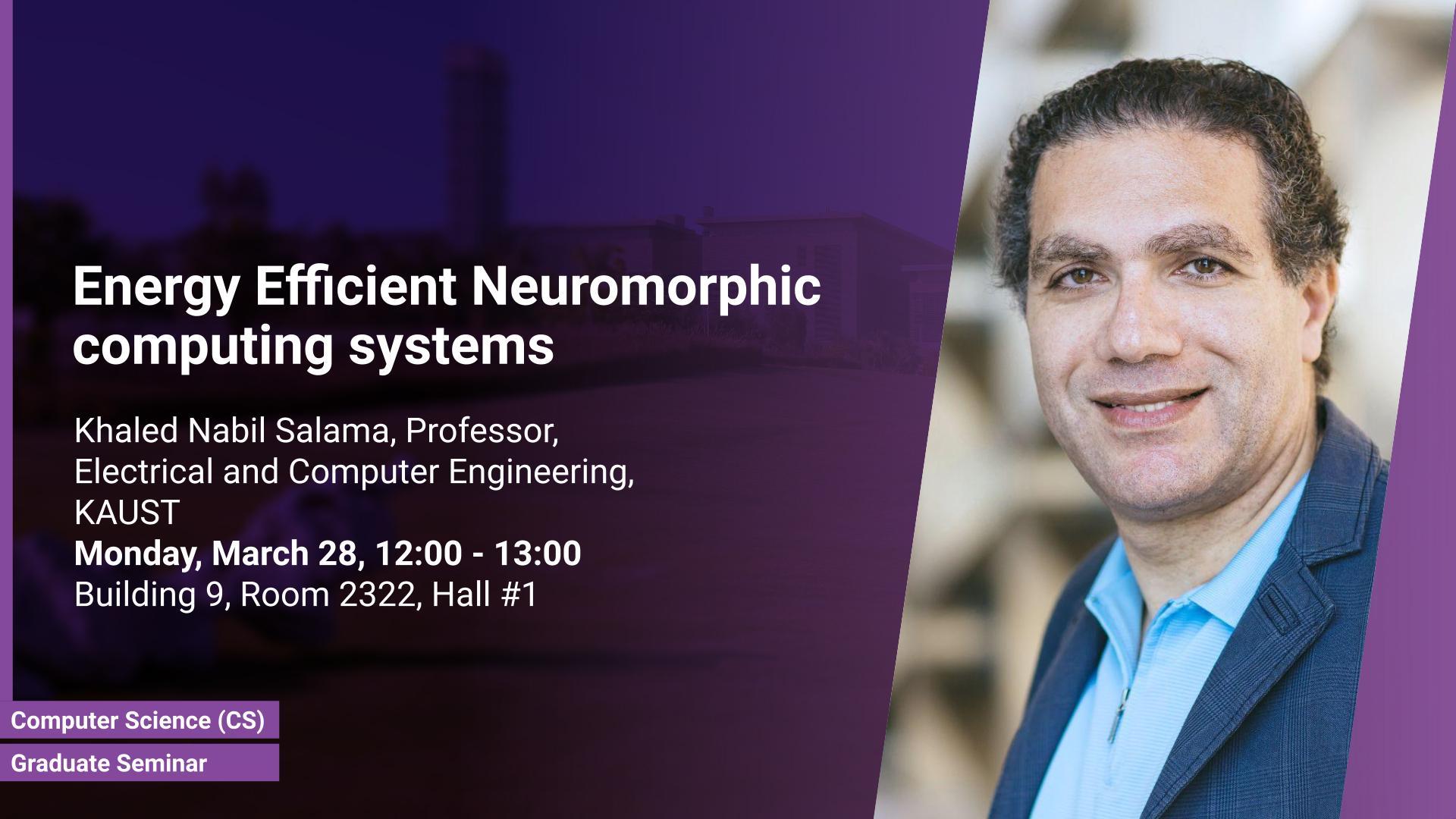Abstract
Traditional computing systems separate processors from memory, performing computation by shuttling data back and forth between these two units all the time. This bottleneck incurs limited processing speed and high power consumption in computing systems for deep learning models of ever-increasing complexity. Novel approaches and new principles are needed to revolutionize computing systems. Neuromorphic systems are proposed as a new computing architecture based on spiking neural networks analogous to the existing nervous systems.
Brief Biography
Khaled Nabil Salama received the B.S. degree (Hons.) from the Department of Electronics and Communications, Cairo University, Cairo, Egypt, in 1997, and the M.S. and Ph.D. degrees from the Department of Electrical Engineering, Stanford University, Stanford, CA, USA, in 2000 and 2005, respectively. He was an Assistant Professor with the Rensselaer Polytechnic Institute, Troy, NY, USA, from 2005 to 2009. In 2009, he joined the King Abdullah University of Science and Technology, Saudi Arabia, where was the Founding Program Chair until 2011. He is currently a Professor with the King Abdullah University of Science and Technology. His research on CMOS sensors for molecular detection has been funded by the National Institutes of Health and the Defense Advanced Research Projects Agency. He has authored 350 papers and holds 40 patents on low-power mixed signal circuits for intelligent fully integrated sensors and nonlinear electronics, in particular memristor devices. He was a recipient of the Stanford–Berkeley Innovators Challenge Award in biological sciences.

